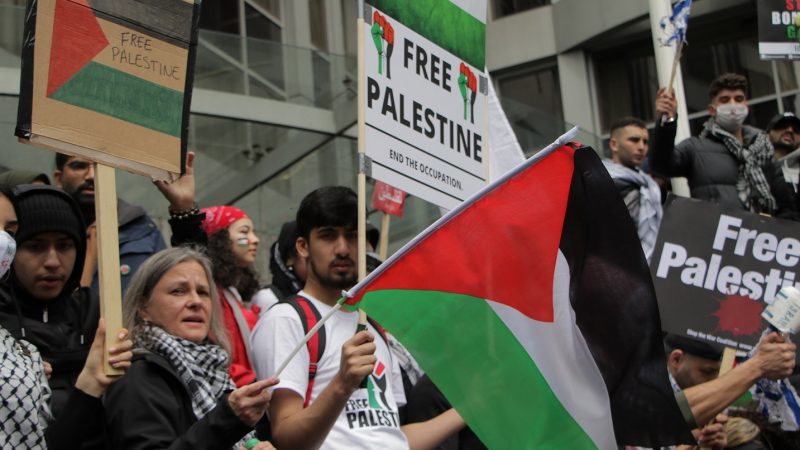Political parties stigmatise people for claiming welfare support but pay no attention of the spiralling cost of corporate welfare which is enriching shareholders and company executives

Election manifestos of all political parties are out as the battle for votes intensifies.
Just like the Conservatives, Labour is planning to squeeze the sick, disabled and poor by cutting benefits though it is dressed-up in vague words. There is no plan to reverse the two-child benefit cap and lift children out of poverty. There is a commitment to “reviewing Universal Credit”, plan “to support more disabled people and those with health conditions into work” and allusions to new “Work Capability Assessments”. Labour has shunned new taxes on the rich or corporations and committed to reduced borrowing, the self-imposed fiscal rules will inevitably squeeze welfare spending. The Resolution Foundation estimates that Labour will need to impose spending cuts of £18bn on unprotected departments such as transport, justice and the Home Office. The real value of welfare payments won’t be maintained.
Of course, any political party can (re)examine public spending and consider welfare reforms but the consequence for individuals and households are not spelled out. All major parties are united in silence on the size of the corporate welfare programme, its effect on the public purse, taxes, household budgets, inflation and more. There is no plan to review subsidies, grants and handouts or protect households from profiteering by companies exploiting their dominant market position.
Big business funds political parties, hands consultancy jobs to legislators and its interests are deeply embedded into the political system. Ever since the 1980s, under the influence of business-funded think-tanks the state has been reconstructed. Instead of directly investing in new industries, such as information technology, biotechnology and aerospace, it has become a guarantor of corporate profits. Numerous publicly-owned entities, such as water, rail, mail, oil, gas and care homes, have been privatised at knock-down prices and eventually sold to foreign investors. This has been accompanied by outsourcing of public services, the private finance initiative (PFI) and corporate bailouts.
Banks are a classic example. At the height of the 2007-08 financial crash, the state suddenly found £1,162bn of cash and guarantees (£133bn cash + £1,029bn of guarantees) to bail out ailing banks. To assist capital markets and speculators it also conjured up £895bn of quantitative easing. In 2022, compensation of £120m was handed to investors in London Capital and Finance. Finance industry profits remain privatised and the cap on bankers’ bonus, which was designed to curb reckless risk-taking, has been scrapped. The economy is yet to fully recover from the bailouts.
Between 2015 and 2023 renewable energy sector received £60bn in public subsidies. Fossil fuel companies for the same period received £80bn. In return, the people don’t own anything. Companies keep the resulting assets and income streams.
In 2022-23, the energy price spike threatened to increase fuel poverty and bad debts of energy companies. The government could have acted to reduce profit margins of energy companies, but didn’t. It instead handed over £78bn to energy companies. British Gas increased its profits ten-fold. BP and shell more than doubled their profits. Under public pressure £39.9bn was recouped through windfall taxes on energy producers. The state is still committed to footing some £24bn of the cost of decommissioning oil and gas rigs through a variety of tax reliefs. Drax burns wood from forests to produce electricity and is contracted to receive subsidy of £10.4bn for the period 2012-2027. Oil giant Equinor could receive subsidies of £3.75bn.
The state routinely hands out hard cash to businesses which were privatised. Avanti West Coast managers famously referred to this as “free money” and “too good to be true”. In the last decade, privatised train companies have received subsidy of over £75.2bn. Labour’s manifesto promises to bring rail companies into public ownership. However that commitment only applies to passenger operating companies and excludes lucrative freight and rolling stock companies.
The government has given £500m to Jaguar and Land Rover for production of batteries for electric vehicles. £500m has been handed to Tata Steel and another £500m to Jingye Steel. The government has provided £5bn subsidy to telecom companies to persuade them to provide internet services to rural areas.
Bailouts, cash, grants and subsidies are not the only avenues of corporate welfare. There are 1,180 tax reliefs, but just 365 have official costings. Many are given to corporations to achieve some economic or social objectives but there is little monitoring. The Chancellor stated that Research and Development (R&D) tax reliefs had been subject to “abuse and fraud. In 2020-21, R&D losses due to error and fraud were £1.13bn. A former head of HMRC urged the government to scrap the “entrepreneurs’ relief”, costing £2bn a year, because it provided “no incentive for real entrepreneurship”.
In 2014, the government created the video games tax relief for games with “culturally British accreditation”. Companies adopted creative strategies to claim the relief. Games such as “Batman”, “Goat Simulator”, “Grand Theft Auto” and “Sonic the Hedgehog” could hardly be described as “culturally British” but received tax relief. James Bond films receive massive subsidies from the UK taxpayers, but the company behind it routinely declares losses and pays little or no corporation tax.
The National Audit Office noted that “there are too many examples where these reliefs either do not achieve their economic objectives or are subject to significant error and fraud, costing the Exchequer billions of pounds. … We have seen examples of tax reliefs where the costs have increased quickly … the government cannot know the cause if it has not carried out adequate compliance work to ensure only legitimate claimants received the reliefs”.
Corporate welfare programmes allow corporations to ride roughshod over workers and customers. Some 4.1m UK workers are in precarious jobs as the use of zero hour contracts and fire and rehire has proliferated. Real average wage is lower than in 2008. People use foodbanks, charity and social security benefits to make ends meet. 38% of the people on Universal Credit are in employment. Their wages are being subsidised by the public purse whilst corporate profit margins have soared.
Water companies have long been permitted to abuse customers. The pricing formula used by water regulator OFWAT guarantees real returns to companies each year. It takes no account of the quality of water or sewage dumping. Too many internet and mobile phone companies are increasing customer bills by the rate of inflation + 3.9% each year even though there is no real increase in their operating costs. It is a similar story at Royal Mail, which was privatised in 2013. At the time of privatisation, first-class postage stamp cost 60p and second-class 50p. Some 11 years later, the first-class postage has rocketed to £1.35 and second-class to 85p, an increase of 70%-125%. The frequency of mail delivery has declined. Royal Mail only meets 74.5% of its targets but that hasn’t persuaded regulators to curb price rises. The companies are effectively raising capital from consumers, whilst companies and shareholders own the resulting assets and receive returns.
The public purse is gouged by drug companies selling medicines to the NHS at inflated prices. For example, a pharmaceutical company charged the NHS £80 for a single pack of tablets that had previously cost less than £1. Another inflated the price of hydrocortisone tablets by more than 10,000% compared with the original branded version.
Companies are allowed to manufacture and sell deadly products certain to inflict disability and premature death. For example, tobacco, alcohol, ultra-processed foods and fossil fuels kill 2.7m people a year in Europe. Neither shareholders nor companies bear the social cost, which falls on society. The public purse funds social irresponsibility and effectively transfers wealth from people to companies.
The Public Accounts Committee reported that the government lost up to £28.5bn to fraud and error in procurement of personal protective equipment (PPE) due to lax checks and controls. A Treasury Minister resigned live in the Lords and accused the government of “arrogance, indolence and ignorance” in its attitude to tackling fraud. He added that banks handing out Covid loans “have been assisted by the Treasury, who appear to have no knowledge or little interest in the consequences of fraud to our economy or our society …Schoolboy errors were made: for example, allowing over 1,000 companies to receive bounce-back loans that were not even trading when Covid struck.”
Political parties stigmatise people for claiming welfare support but pay no attention of the spiralling cost of corporate welfare which is enriching shareholders and company executives. Public services are being cut to fund corporate welfare. Successive governments have failed to publish the full cost of corporate subsidies, grants and tax reliefs and there is considerable fraud. There is little monitoring to check that the handouts deliver the assumed economic objectives. As long as political parties are funded by corporations, there is little chance of critical scrutiny of corporate welfare programmes.





